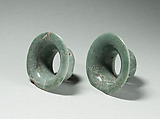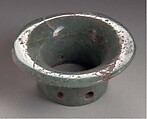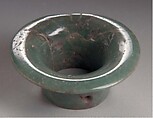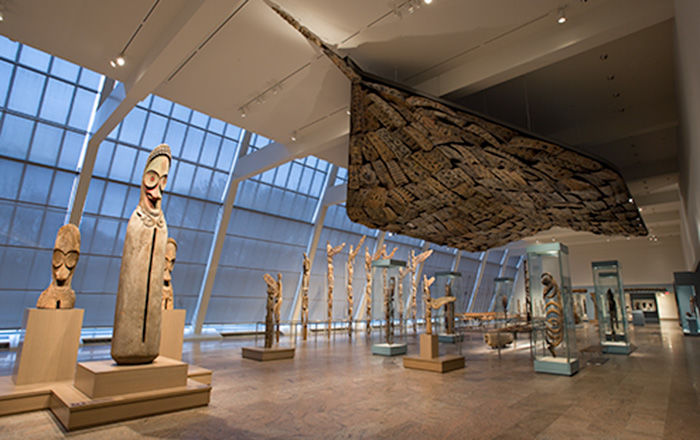Returned to lender The Met accepts temporary loans of art both for short-term exhibitions and for long-term display in its galleries.
Two ear ornaments
Not on view
Imported from sources in the Motagua River valley of highland Guatemala, jade was the most valued material in Maya lapidary art. Rulers wore magnificent jade jewelry in life, and these ornaments accompanied them in death. The objects exhibited here were part of an elaborate belt, with three celts, or axe- shaped implements, hanging from a broad perforated bead. The earspools were part of a small mosaic mask originally at the center of the belt assemblage.
Dos orejeras
Estructura F8-1, El Zotz, Guatemala
Siglo IV
Jade
El jade era el material más preciado en el arte lapidario maya y se obtenía del valle del río Motagua en el altiplano guatemalteco. Los gobernantes se ataviaban con magníficos adornos en vida, y al morir, se les enterraba con sus joyas. Estos objetos formaron parte de un complejo cinturón con tres celtas (piezas en forma de hachuela) que colgaban de una cuenta perforada. Las orejeras pertenecían a una pequeña máscara de mosaicos que originalmente estaba en medio del cinturón.
Due to rights restrictions, this image cannot be enlarged, viewed at full screen, or downloaded.
This artwork is meant to be viewed from right to left. Scroll left to view more.




